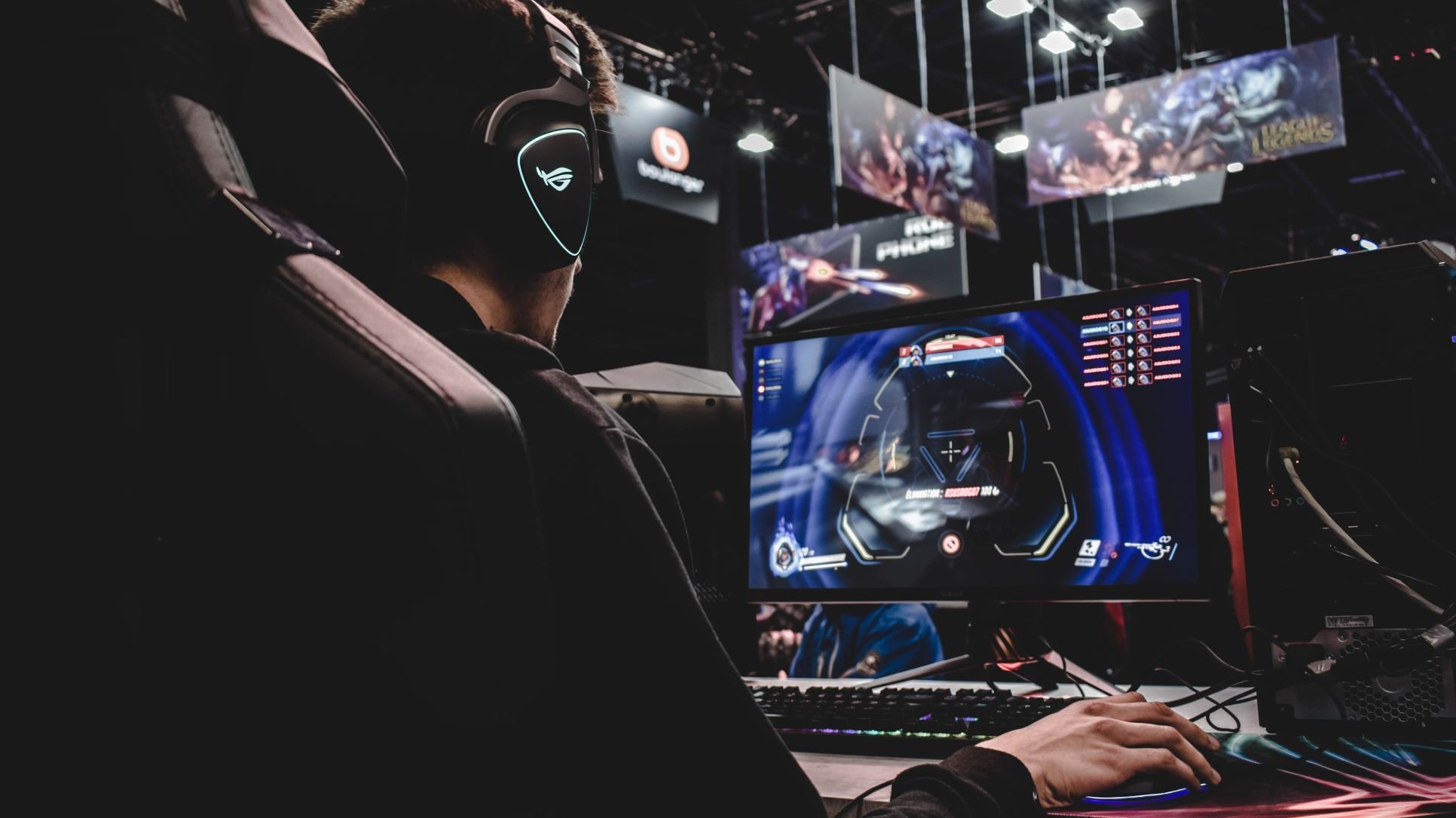Search the latest and greatest job opportunities in sport
 Recent years saw sport finally back in action as we navigated the considerable challenges of the pandemic. Now in 2023, the industry is set to be shaken up by the technological innovations transforming every aspect of sport, on and off the pitch. Today technology is playing a fundamental role throughout the entire sports industry, from recruitment to the identification and training of athletes, from audience experience to media and management. Here we share five technology predictions for the sports industry in the year ahead and how they will influence your sporting career.
Recent years saw sport finally back in action as we navigated the considerable challenges of the pandemic. Now in 2023, the industry is set to be shaken up by the technological innovations transforming every aspect of sport, on and off the pitch. Today technology is playing a fundamental role throughout the entire sports industry, from recruitment to the identification and training of athletes, from audience experience to media and management. Here we share five technology predictions for the sports industry in the year ahead and how they will influence your sporting career.
AI is essentially technology that mimics humans’ ability to sense, think and act and AI-based systems are already being deployed in virtually all major sports disciplines. Sensors, wearables, and computer vision-powered cameras all use AI to process data to deliver forecast models. At the same time, natural language processing devices can leverage speech and text recognition to gather insights regarding the audience's sentiment. However sports are set to be further revolutionised through AI in 2022. An exciting example is the recent partnership between Formula 1 and Amazon Web Services (AWS) to re-design Formula 1's next-generation race car in time for the 2022 season. With the goal of improving wheel-to-wheel racing between cars, F1 transferred its simulation environment to AWS’s high performance computing platform. This enabled the barriers of time and computing capacity to be overcome and demonstrates the innovative and dynamic possibilities AI is bringing to the sports industry.
Whilst AI has already started to assist coaches in optimising athletes’ performance, this trend is expected to extend to athletes themselves this year. Companies at the forefront of this movement include Athlete's AI, providing athletes with the ability to live stream or upload their match or training sessions. AI algorithms will then conduct real-time or post-match analysis, by reviewing techniques, ball speeds, comparing to previous matches or plotting progress over time. This will provide athletes with the analytics needed to identify key areas for improvement, and shows how AI is set to shake up traditional training programmes and structures.
The use of AI in stadiums and venues will likely gain pace in 2022. Stadium entry, drone cameras and smart ticketing are all aspects currently controlled by AI, but there is huge potential for this to be taken further. This may be through automated video highlights or virtual umpires, AI aims to transform the fan experience and take live event engagement to new levels.
The impact of AI and the industries focus on data will also transform the betting industry. AI algorithms are increasingly being used for analysis purposes to help improve the accuracy of predictions in sport, such as winners or the final score. High-tech companies, including Sportradar Group and Genius Sports, are therefore starting to sell analytical data to bookmakers, creating an emerging data market. 2022 will see growth of this trend as the sports industry explores and implements the opportunity data and AI can deliver.
AI algorithms are increasingly being used for analysis purposes to help improve the accuracy of predictions in sport
Finally, new sports have already been developed as a result of AI. For example, Speedgate has already been established as the world’s first AI sport. This analysed more than 1,000 outputs to eventually combine familiar elements of croquet, rugby, and soccer. However, this is only the beginning, and this trend will drive new career opportunities in the sports industry, demanding new skills and new perspectives on what is possible.
The structure of sports communication is changing, with content increasingly written by 'intelligent' and AI-powered tools to enable more frequent publications with fewer resources. A great example of this is in baseball, where natural language is being used to translate hard data into narratives through AI-driven platforms. Younger, digital native generations are consuming their sports content, not via traditional media but through social networks and digital channels. 56% of fans are wanting more interactive content, meaning traditional sports communications will need to diversify to engage and convert new audiences. Those looking to transition into a career in sports communications this year will therefore need to present their digital skills and understanding of today's media landscape to respond to this trend and deliver impact.
Generation Z are more likely to get their sports content from social media than traditional channels, meaning sports journalism is having to diversify to engage a new 'mobile first' generation.
Rights holders are having to continue to rapidly evolve to keep pace with the intense change of the sports broadcasting landscape. The traditional 'Pay TV' model continues quarter-on-quarter declines while the pandemic has embedded OTT in households across the globe with dramatic and continued growth in streaming platform providers. Sports rights are currently valued at $48.6 billion globally, with an expected increase of 75% over the next five years due to the growth in audiences switching towards sports streaming services . This is driven by consumers desire for accessible and affordable alternatives to consuming their favourite sports and will continue to drive growth and change in this market throughout the year ahead.

59% of UK sports fans would currently watch sport exclusively through online streaming platforms, but this figure is predicted to increase this year, representing the continued rise of mobile-first engagement. This will result in visual content moving away from the standard landscape view to vertical display. We have already seen examples of this in the industry, including Sky Sports who streamed the DFL Supercup vertically on their app. Rights holder’s and broadcasters will be continually testing new approaches to provide fans with a innovative yet seamless viewing experience in the year ahead.
Influencer marketing has gained increasing popularity over the last few years, as brands capitalise on the power of sporting superstars to engage with target audiences and 2022 is set to be no different. 2021 saw Jack Grealish partner with Boohoo Man and Emma Raducanu, who entered the sporting spotlight last year, partner with Evian, Dior, Tiffany’s and British Airways with social media playing a large part in the power of these partnerships.
Congratulations to our new Global Ambassador, @emmaraducanu ✨ We are so proud to have her in our team and support her throughout her journey as she continues to thrive in the sport and embrace a balanced yet energised lifestyle.#evian #emmaraducanu #evianwater #stayhydrated pic.twitter.com/wJt37k5pk0
— evian (@evianwater) December 9, 2021
As digitalisation continues to evolve, brands are increasingly focusing on partnering with influencers, suggesting this trend is likely to gain even further traction in 2022. TikTok has become the social platform of the moment being the fastest-growing social media network ever and Instagram has now introduced a collaboration feature where a post is featured on both users accounts simultaneously, driving engagement and reaching a bigger audience. These trends and platforms should be watched closely by those seeking to grow their marketing career in the sport, as it’s an innovative and effective way to capitalise on revenue and grow awareness.
Digitalisation continues to evolve, providing increasing opportunities for ecommerce to partner with influencers, suggesting this trend is likely to gain even further traction in 2022
Athletes are also predicted to become more 'authentic' in 2022, with social media providing the perfect opportunity to convey more of their personality. Fans are seeking deeper connections with their favourite players and want to see more personalised content, that goes beyond the conventional 'on the pitch' posts. Many athletes, such as Cristiano Ronaldo, have already adopted this trend by creating and sharing light-hearted and humorous content on platforms such as TikTok. These platforms are also a unique way for them to showcase partnership deals or sponsorships. 2022 will therefore see athletes continue to differentiate themselves and break away from traditional content and revenue streams. This is an exciting time for the changing role of sport in society, as more diverse athletes build their own brands, increase fan engagement, and demonstrate their less “serious” side.
Fans are seeking deeper connections with their favourite players and want to see more personalised content
The continued growth of Esports in 2022 is undeniable, representing how traditional sports are changing to respond to digital transformation and capturing new audiences. The Esports industry is currently valued at $1.8 billion in revenue, but is expected to surpass the $2.5 billion dollar revenue mark in the year ahead, and has been one of very few sports entertainment ventures that thrived financially amidst a global pandemic. Offline sports and teams that have not already diversified into Esports are doing so, with Manchester City recently moving into Fortnite Esports and offering contracts to their online players. This trend is expecting to evolve further in 2022, as sports teams increasingly partner with Esports brands to drive awareness, engagement, and revenues. The Asian Games 2022 to be held in China will have Esports as a medalled event for the second time and will be key opportunity to further drive Esports into mainstream relevance.

Away from the video game and back to the live event, new technology is continuing to evolve the fan experience. The introduction of 5G in stadiums is expected to expand this year to provide a richer and more immersive experience for fans. Ericsson and Ooredoo have already partnered for the Qatar 2022 Football World Cup, to provide optimal connectivity in stadiums, fan zones, airports and places of attraction. This will allow fans to stream live events in high definition as well as providing social networking services, to respond to the rise of digital becoming a fundamental aspect of the fan experience. Therefore, other stadiums will likely follow suit this year to meet fans changing needs and wants.
This year's Football World Cup will see 5G in stadiums, in order to provide an unforgettable experience for fans.
Sports team and their owners are also embracing new technologies and focusing on fan engagement. We have already seen this in the likes of Socio, a company that allows fans to own a share and influence decisions of their favourite teams through the purchase of crypto tokens. However, 2022 is expected to see this taken further, driven by the rise of Decentralised Autonomous Organisations (DAO’s). These are committees owned by members without any central leadership and their influence in the sports industry is beginning to be noticed. The Krause House are an example of a recently formed DAO seeking to purchase an NBA team. This represents a shift away from traditional ownership structures, and these organisations are predicted to begin purchasing sports teams, leagues and potentially athletes this year.
The pandemic has delivered a dramatic shake-up in the sports industry jobs market. Both in terms of the structure and culture of organisations and the services/products they deliver but also the breath of new opportunities available to quality candidates and the commanding position candidates find themselves in the jobs market. Sporting organisations are needing to quickly restructure their teams with new skills and competencies to support the fast pace of innovation needed to adapt to a changing commercial landscape, fuelled by new technology, and they can not find the talent fast enough.
Graduates and professionals that can demonstrate skills and experience in new technology and a passion for a digital future are in high demand across the sports industry. From content creators and marketing or sales professionals to stadium manager and even coaches, they all require a clear focus on technology that will help their brands, organisations, clubs or teams uncover and enable future opportunities.
For those looking to transition into the sports industry, now is a great time. The skills and expertise gained from other industries has never been so valuable to the sports industry as technology creates convergence. To gain a deeper understanding of how COVID-19 will shape future careers in sport, check out our article here.
Find more great articles to learn about the sports industry on our Learn: Knowledge Hub
Search the latest and greatest job opportunities in sport
Pablo Romero, director of protocol at Sevilla FC and lecturer in the UCAM Master's Degree in Sports Management, shares t...
Read moreSuccess in the football industry requires more than theoretical knowledge—networking, internships, and hands-on experien...
Read moreWith the rise of new technologies, greater diversity, and an all year round activation calendar, the sports industry is ...
Read more